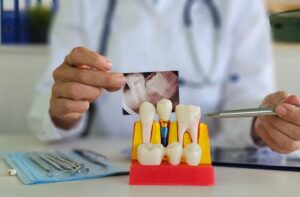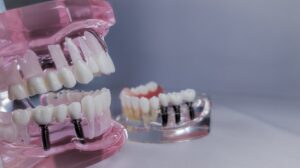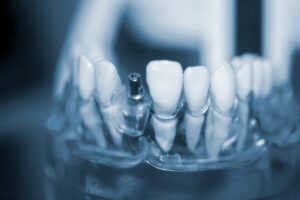How Long Do Dental Implants Last?
Dental implants are an investment in your health, and it’s understandable if you want to know how long they’ll last. There are other factors to consider when estimating the longevity of your dental implants.
A dental implant has three parts, each with a different life span. They include
Other factors may increase or decrease an implant’s life span. Mouth location is one factor that is beyond your control. Implants that replaced back teeth face more wear and tear due to chewing or maybe even grinding. These may need to be replaced sooner than a front tooth implant.
Also, medical conditions such as cancer and diabetes can weaken gums and may cause implants to fail sooner. If you have a medical condition, look into more aggressive oral hygiene and reach out to Dr. Mike as soon as possible. You may have to use bridges or dentures if your mouth can no longer support dental implants.
Good dental hygiene is essential for adding life to your implants. If you have good oral hygiene habits, your implants will be around for a long time. If you tend to neglect your teeth, you may require dental work sooner than expected.
Are you ready to replace dentures, bridges, or broken teeth with dental implants? Call Cleveland Implant Institute today to schedule a consultation with Dr. Mike.
Mentor Office
6303 Center St
Mentor, OH 44060-2467
Concord Office
8245 Auburn Road
Concord, OH 44077






